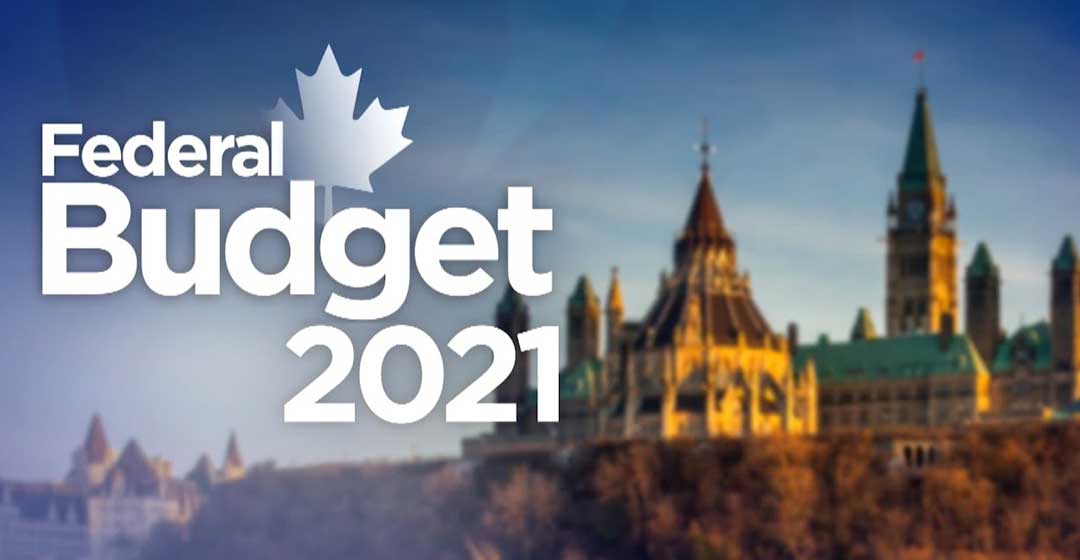
On April 19, 2021, Deputy Prime Minister and Finance Minister Chrystia Freeland tabled in the House of Commons the Liberal Government’s first federal budget in more than two years, A Recovery Plan for Jobs, Growth, and Resilience (Budget 2021). Budget 2021 contains tax measures that provide additional COVID-19 support to Canadian businesses, promote clean energy, introduce new sales and excise tax measures, limit interest deductibility and address certain cross-border financing structures. These measures include:
COVID-19 Support and Recovery
- Extending existing COVID-19 emergency business supports and introducing a new Canada Recovery Hiring Program;
- Promoting immediate expensing of the acquisition of certain depreciable capital property (up to $1.5 million per year) by Canadian-controlled private corporations;
Clean Energy Investment
- Amending the list of eligible Class 43.1 and 43.2 clean energy equipment;
- Offering limited corporate income tax rate reductions for manufacturers of zero-emission technologies;
- Creating a new input tax credit for certain capital investments in carbon capture, utilization, and storage projects;
International Tax/General Corporate Tax
- Introducing new rules to limit the amount of net interest expense that may be deducted in computing Canadian taxable income and to limit the deduction of amounts paid or received under hybrid mismatch arrangements;
- Proposals to overhaul Canada’s transfer pricing rules following the Federal Court of Appeal decision in Her Majesty The Queen v Cameco Corporation(2020 FCA 112);
- Committing to continuing the Government’s work to modernize the general anti-avoidance rule (GAAR);
Sales/Excise Taxes
- Committing to creating an interim digital services tax applicable to digital services businesses and to enact previously announced GST/HST measures applicable to e-commerce platforms;
- Introducing an excise duty on vaping products and a luxury tax on personal use vehicles, boats, and planes;
Compliance/Audit Powers
- Restructuring Canada’s transaction disclosure rules, introducing a new class of “notifiable transactions,” and requiring disclosure of uncertain tax positions; and
- Strengthening the CRA’s audit authority to compel persons to answer all proper questions for any purposes related to the administration or enforcement of, amongst other statutes, the Income Tax Act(Canada) and the Excise Tax Act(Canada).
Source: McCarthy
Newsletters
No Results Found
The page you requested could not be found. Try refining your search, or use the navigation above to locate the post.
Events & Sponsorship
No Results Found
The page you requested could not be found. Try refining your search, or use the navigation above to locate the post.
Articles & Publications
Nearly a million Canadian bank records sent to IRS
Number of government transfers of records of bank accounts held by Canadian residents to U.S. has been rising The Canada Revenue Agency sent 900,000 financial records belonging to Canadian residents to the Internal Revenue Service in September — nearly a third more...
Basics of Sales Tax
Basics of Sales Tax The GST/HST and QST are governed by a complex set of rules and regulations as set out by the excise tax (ETA). This article is a good starting point to understanding these rules.Fundamental terms for the sales tax Basic Charging Provision...
Do I Need to Charge GST/HST?
Do I Need to Charge GST/HST? Just started your own business? Congrats and welcome to the world of being your own boss! According to Statistics Canada, you can now count yourself among the other 2.7 million Canadians who are living the self-employed dream.If...
Notice of Assessment, Notice of Reassessment, Request for Information and Audit
Notice of Assessment, Notice of Reassessment, Request for Information and Audit. If you’ve just opened your mailbox and have a notification from the Canada Revenue Agency’s MyAccount, don’t be intimidated. Here’s what you need to know about the different types...
The Real Cost of Missing the April 30 Tax Deadline
The Real Cost of Missing the April 30 Tax Deadline We know, life gets hectic, and it can be easy to forget an appointment or deadline here and there, but, it’s best not to forget to file your taxes on time, especially considering that the Canada Revenue Agency...